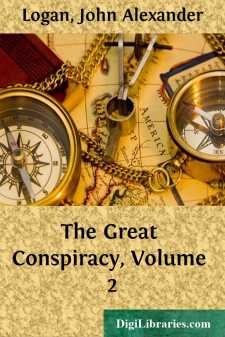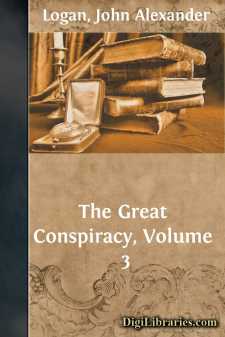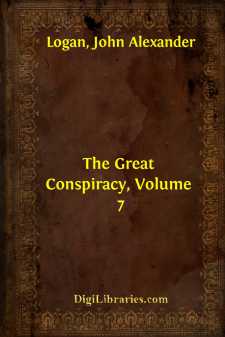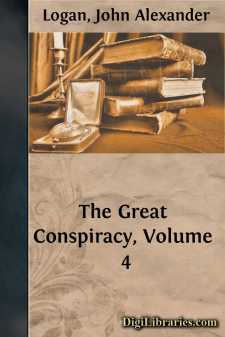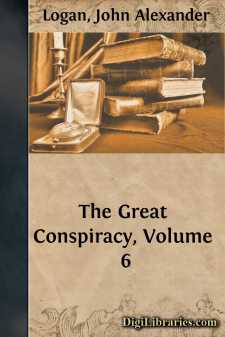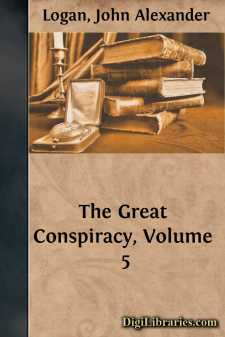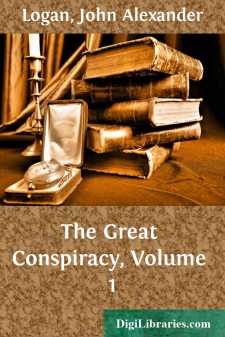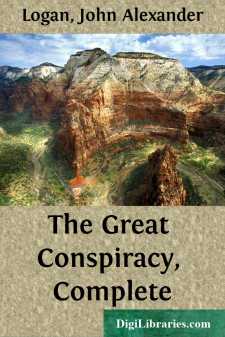Categories
- Antiques & Collectibles 13
- Architecture 36
- Art 48
- Bibles 22
- Biography & Autobiography 813
- Body, Mind & Spirit 142
- Business & Economics 28
- Children's Books 15
- Children's Fiction 12
- Computers 4
- Cooking 94
- Crafts & Hobbies 4
- Drama 346
- Education 46
- Family & Relationships 57
- Fiction 11828
- Games 19
- Gardening 17
- Health & Fitness 34
- History 1377
- House & Home 1
- Humor 147
- Juvenile Fiction 1873
- Juvenile Nonfiction 202
- Language Arts & Disciplines 88
- Law 16
- Literary Collections 686
- Literary Criticism 179
- Mathematics 13
- Medical 41
- Music 40
- Nature 179
- Non-Classifiable 1768
- Performing Arts 7
- Periodicals 1453
- Philosophy 64
- Photography 2
- Poetry 896
- Political Science 203
- Psychology 42
- Reference 154
- Religion 513
- Science 126
- Self-Help 84
- Social Science 81
- Sports & Recreation 34
- Study Aids 3
- Technology & Engineering 59
- Transportation 23
- Travel 463
- True Crime 29
The Great Conspiracy, Volume 2
Description:
Excerpt
CHAPTER VI.
THE GREAT CONSPIRACY MATURING.
The 6th of November, 1860, came and passed; on the 7th, the prevailing conviction that Lincoln would be elected had become a certainty, and before the close of that day, the fact had been heralded throughout the length and breadth of the Republic. The excitement of the People was unparalleled. The Republicans of the North rejoiced that at last the great wrong of Slavery was to be placed "where the People could rest in the belief that it was in the course of ultimate extinction!" The Douglas Democracy, naturally chagrined at the defeat of their great leader, were filled with gloomy forebodings touching the future of their Country; and the Southern Democracy, or at least a large portion of it, openly exulted that at last the long-wished-for opportunity for a revolt of the Slave Power, and a separation of the Slave from the Free States, was at hand. Especially in South Carolina were the "Fire-eating" Southrons jubilant over the event.
["South Carolina rejoiced over the election of Lincoln, with bonfires and processions." p. 172, Arnold's "Life of Abraham Lincoln."
"There was great joy in Charleston, and wherever 'Fire Eaters' most did congregate, on the morning of November 7th. Men rushed to shake hands and congratulate each other on the glad tidings of Lincoln's election. * * * Men thronged the streets, talking, laughing, cheering, like mariners long becalmed on a hateful, treacherous sea, whom a sudden breeze had swiftly wafted within sight of their longed-for haven." p. 332, vol. i., Greeley's American Conflict.]
Meanwhile any number of joint resolutions looking to the calling of a Secession Convention, were introduced in the South Carolina Legislature, sitting at Columbia, having in view Secession contingent upon the "cooperation" of the other Slave States, or looking to immediate and "unconditional" Secession.
On the evening of November 7th, Edmund Ruffin of Virginia—a Secession fanatic who had come from thence in hot haste—in response to a serenade, declared to the people of Columbia that: "The defense of the South, he verily believed, was only to be secured through the lead of South Carolina;" that, "old as he was, he had come here to join them in that lead;" and that "every day delayed, was a day lost to the Cause." He acknowledged that Virginia was "not as ready as South Carolina;" but declared that "The first drop of blood spilled on the soil of South Carolina would bring Virginia, and every Southern State, with them." He thought "it was perhaps better that Virginia, and all other border States, remain quiescent for a time, to serve as a guard against the North. * * * By remaining in the Union for a time, she would not only prevent coercive legislation in Congress, but any attempt for our subjugation."
That same evening came news that, at Charleston, the Grand Jury of the United States District Court had refused to make any presentments, because of the Presidential vote just cast, which, they said, had "swept away the last hope for the permanence, for the stability, of the Federal Government of these Sovereign States;" and that United States District Judge Magrath had resigned his office, saying to the Grand Jury, as he did so: "In the political history of the United States, an event has happened of ominous import to fifteen Slave-holding States....


